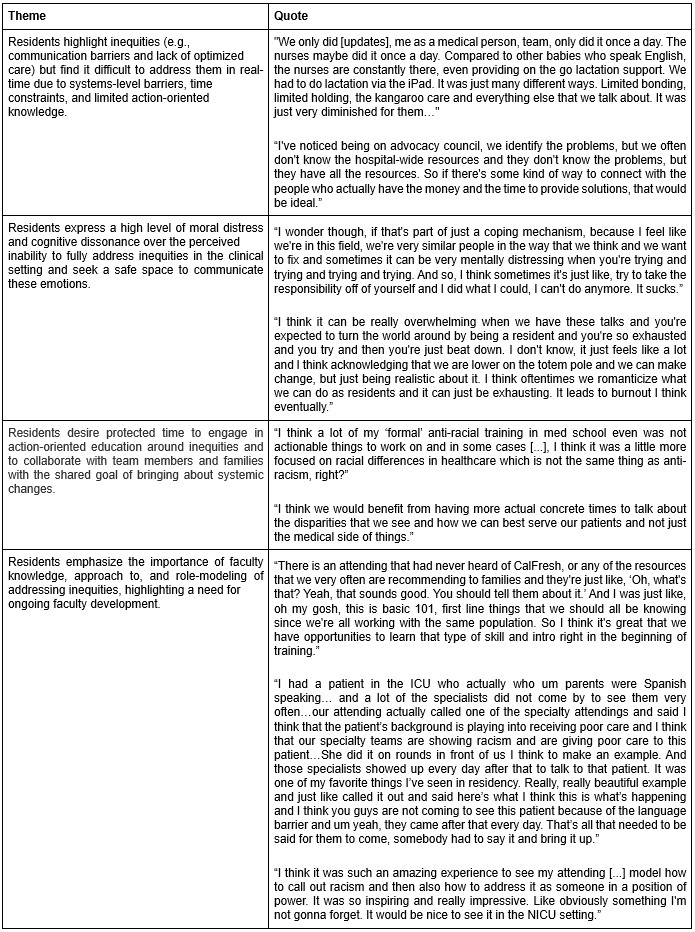Neonatal-Perinatal Health Care Delivery: Epidemiology/Health Services Research
Neonatal-Perinatal Health Care Delivery 1: Epi/HSR Equity
619 - Residents’ Perspectives on Neonatal Health Inequities to Guide an Innovative Curriculum
Publication Number: 619.14
- KB
Keegan F. Bowers, MD (he/him/his)
Resident
Kaiser Permanente Pediatric Care Center
Berkeley, California, United States
Presenting Author(s)
Background: Racial and ethnic inequities exist in neonatal health care. Residents and practicing physicians need a framework or curriculum that increases understanding of bias and supports identifying and reducing inequities. Despite the importance of such a curriculum, resident experiences and perspectives regarding how to teach about neonatal health inequities are unknown.
Objective: To explore pediatric residents’ knowledge, perspectives, and experiences with neonatal health inequities, with the goal of developing a novel resident curriculum.
Design/Methods: In this exploratory, qualitative, IRB-approved study, we conducted 10 focus groups to explore pediatric residents’ perspectives on clinical experiences, prior education, preferred learning method, and curricular design related to neonatal health inequities. Using modified grounded theory, we developed codes, categories, and themes through constant comparison. We ensured trustworthiness through member checking.
Results:
10 focus groups were conducted with 45 total residents participating across 4 residency programs. One of the 10 focus groups specifically recruited residents who identified as underrepresented in medicine. 4 themes were identified (Table 1): Residents highlight inequities (e.g., communication barriers and lack of optimized care) but find it difficult to address them in real time due to systems-level barriers, time constraints, and limited action-oriented knowledge. Residents express a high level of moral distress and cognitive dissonance over the perceived inability to fully address inequities in the clinical setting and seek a safe space to communicate these emotions. Residents desire protected time to engage in action-oriented education around inequities and to collaborate with team members and families with the shared goal of bringing about systemic changes. Residents emphasize the importance of faculty knowledge, approach to, and role-modeling of addressing inequities, highlighting a need for ongoing faculty development. Residents’ perspectives are critically important as we design curricular and systems-level interventions to address neonatal health disparities. Residents are able to highlight inequities in their clinical rotations, but feel helpless to address them given a lack of action-based tools, insufficient time for learning and reflection, and absence of faculty role-modeling.
Conclusion(s): 
